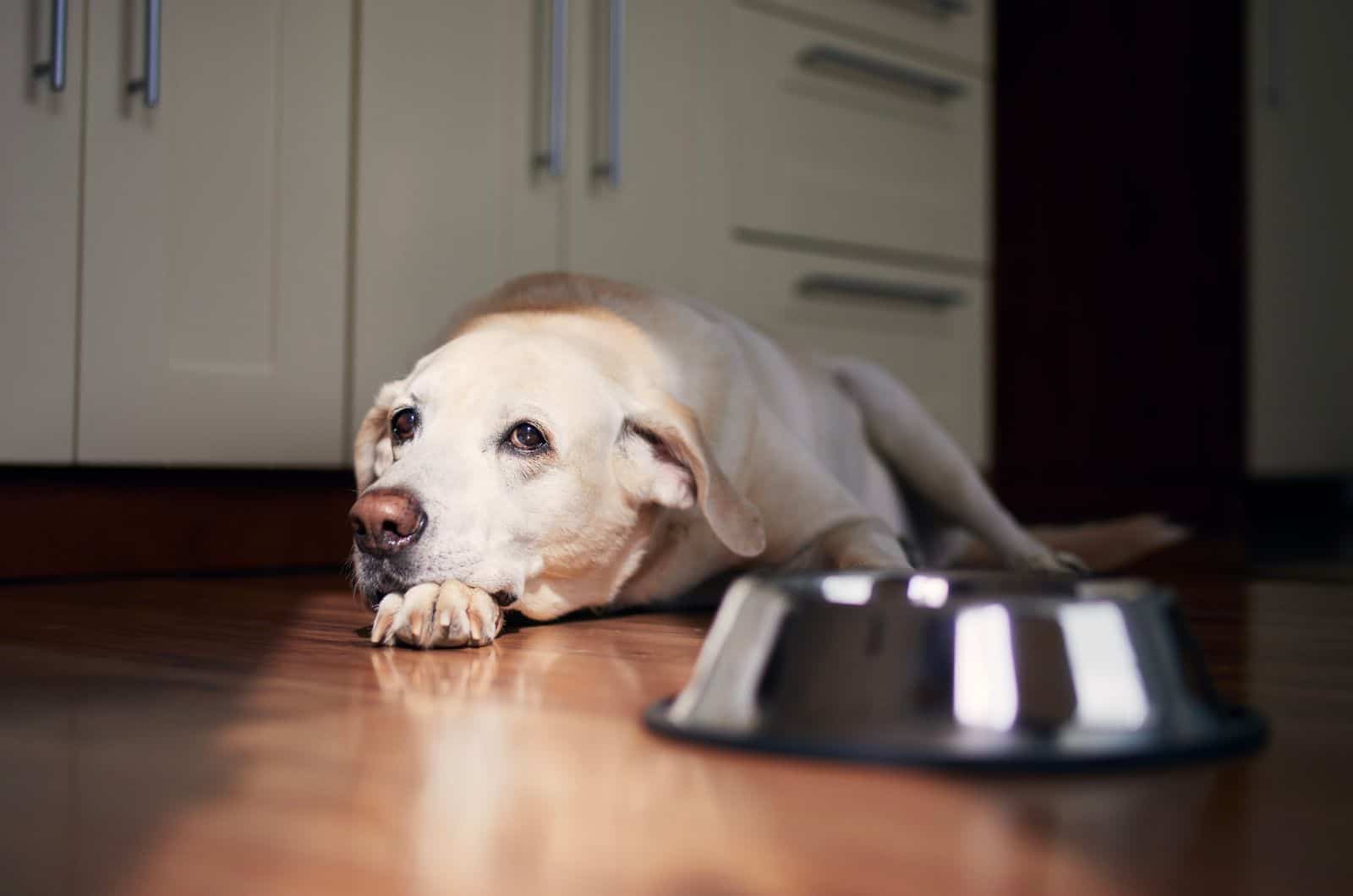Bloat in dogs represents a severe health condition. For the owner, one of the biggest fears is wondering whether a dog with bloat will drink water.
When a dog is consuming water in very small amounts,the condition is already alarming.
But do not be discouraged. Yes, the dmv affected dog will still drink, but you should be prepared.
That is why it is important to notice it early, otherwise it can be fatal. Bloat is manifested mainly through the stomach walls being filled with gas.
Other accompanying symptoms are usually pale gums, drooling, and an irregular heart rate. Some dogs even manifest retching.
Will A Dog With Bloat Drink Water?
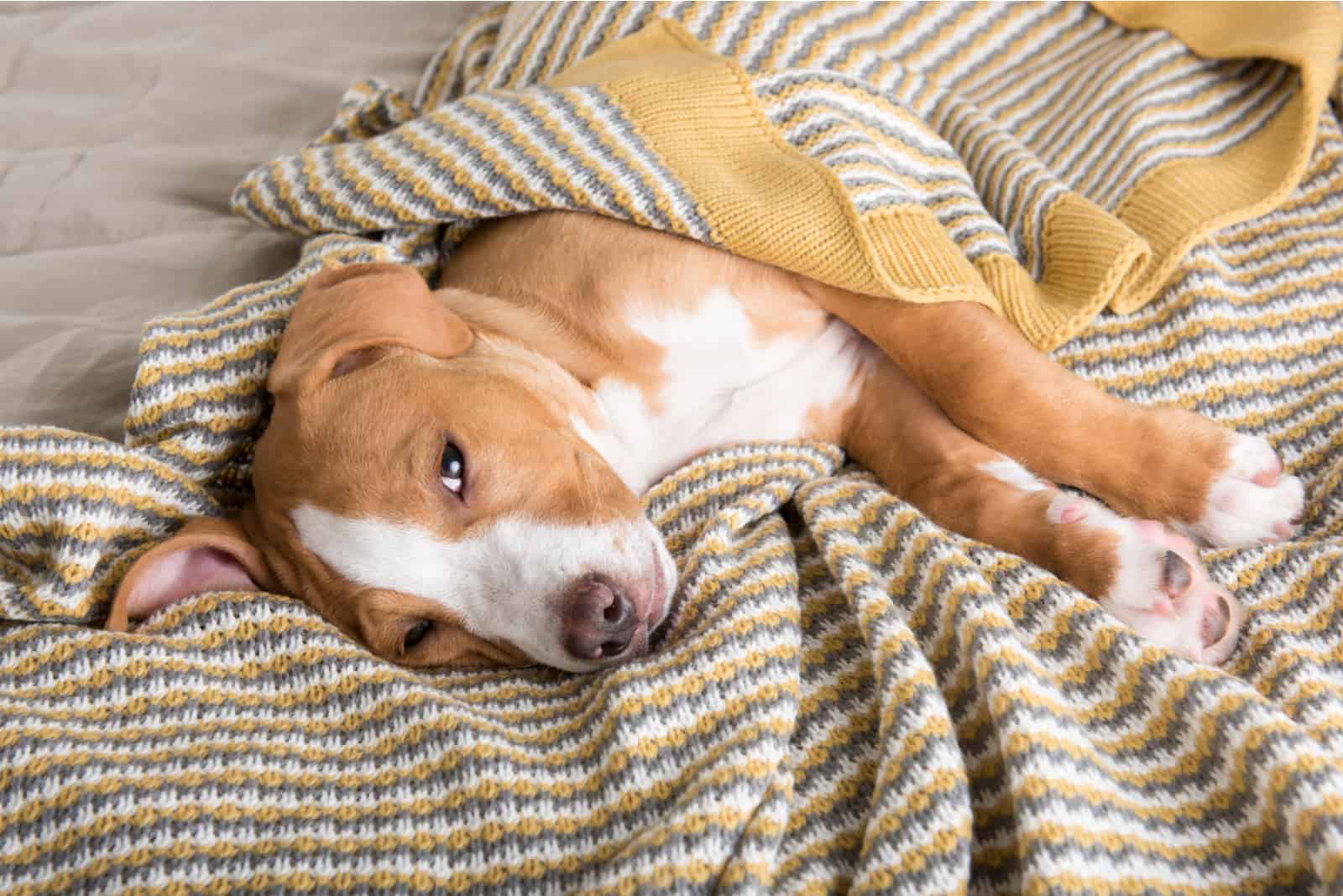
If approached properly – yes!
You are a pet owner and happen to have St.Bernard, or an Old English sheepdog and this is the first time you are facing GDV (Gastric Dilatation Volvulus) in your puppy? GDV is a scientific term for bloat and it is used by veterinarians more often.
Now you are at a stage when you wonder, will a dog with bloat drink water?
Most of the time, the answer is yes. The important thing for dog owners to do, is to actually induce water drinking and encourage frequent water intakes of your canine.
When the symptoms of bloat occur, your dog, due to severe pain, might refuse to drink water, move, or do anything in particular.
This is because of the stomach twist that prevents the regular blood flow to your puppy’s stomach.
In normal cases the stomach position is in the upper part of the body. In bloat, the stomach stretches a bit backwards and causes a gag reflex.
This is what makes the dog refuse to consume anything and makes water repulsive to them.
Things You Should Know About GDV
As a pet owner, you should be aware that bloat is a major threat to your dog’s life. Any postponement poses a higher risk to your canine and puts them in greater danger.
However, there are some things that naturally come across as a misfortune. For instance, owning a giant breed puppy requires constant and consistent awareness around this issue.
Giant Breeds And GDV
Dog breeds susceptible to bloat are mostly deep-chested, giant breeds. That encompasses breeds like:
-German shepherds
-bernards
-great danes
-irish setters
-weimaraners
-boxers
One thing all of these breeds have in common is the fact that they are deep-chested dogs. The setup of their long body and deep chest makes them subject to bloat more often.
Why Deep-Chested Breeds Are Prone To GDV?
Deep-chested breeds are characterized by their narrow rib cages. This setup happens to be lower on their body than in other smaller dogs.
In respect to other, smaller dog breeds there is a negative correlation between height and wideness of the chest.
Deep-chested breeds have deeper (taller) chests. Hence, the chances for stomach twists are higher.
However, GDV should not be a problem with a prophylactic approach. Deep-chested breeds demand more careful awareness of the dog’s stomach potential issues.
In order to avoid a life-threatening outcome, giant breeds’s blood flow should always be a priority.
In the upcoming paragraphs find out what Gastric Dilatation Volvulus means!
Gastric Dilatation Volvulus
GDV is a condition of progressive stomach dilate where gas and food put pressure on the dog’s stomach walls.
The pathophysiology of this disease is reflected in severe pain, low activity levels and decreased blood supply.
Etiology of this condition is uncovered and well studied, given the fact that Gastric Dilatation Volvulus is a widespread phenomenon. The main causes of bloat are:
-stomach torsion caused by irregular feeding habits and feeding position
-overeating
-giving your puppy large amounts of dry food
–basset hounds dog types and their specific body structure.
GDV Symptoms
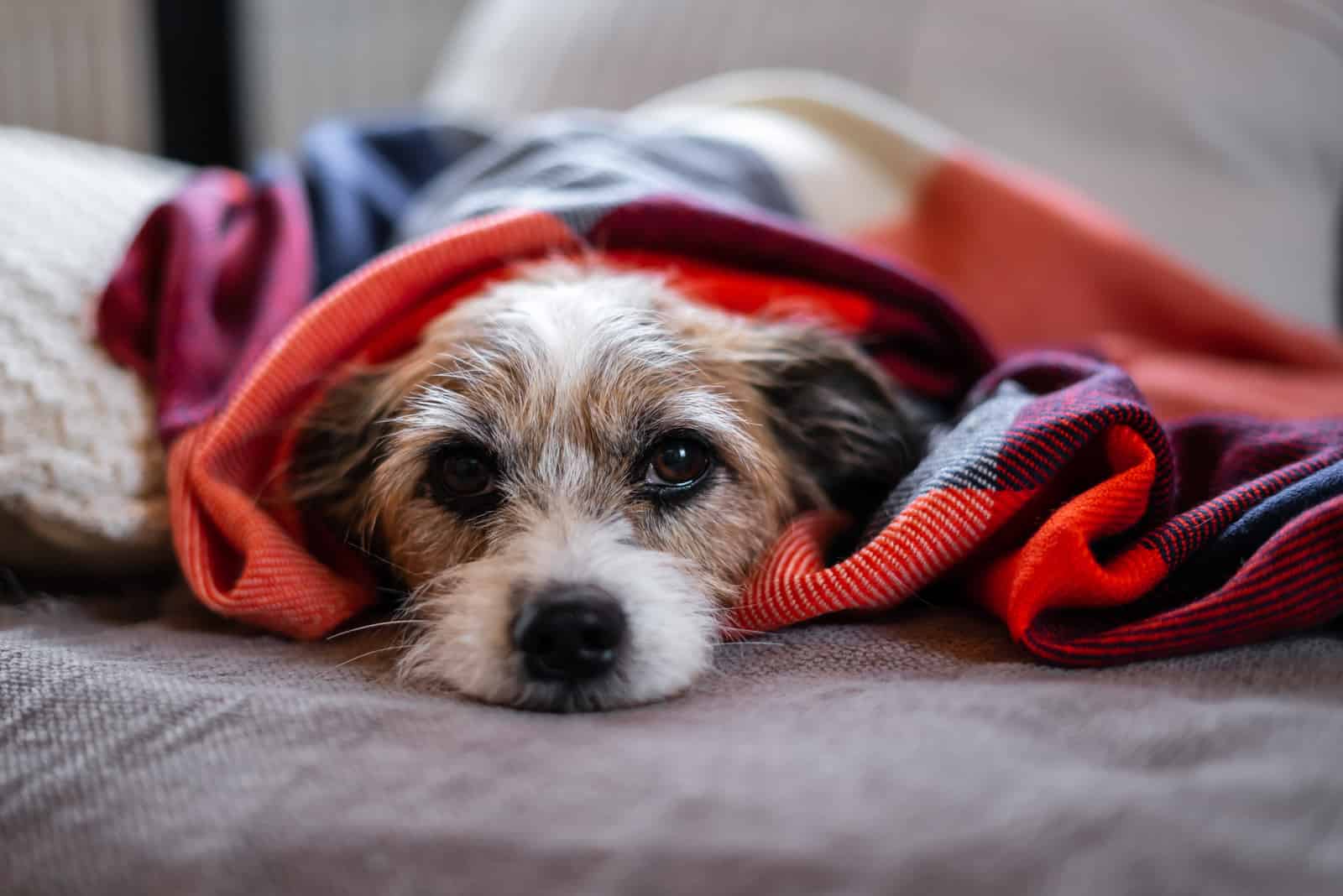
Recognizing the symptoms of bloat is the best prevention of GDV becoming a life-threatening condition. These are the signs of bloat you should be aware of:
1. Swollen stomach
This can be detected by a simple touch. If the stomach area of your puppy is hard, immediately rush to the vet!
2. Pale gums
This phenomenon occurs as a result of excessive drooling and gagging. Pale gums in your dog express infirmity and weakness and lead to a complete exhaustion.
3. Pain
This refers to stomach pain mostly, but it can affect other parts of your canine’s body, like his spine. It is very hard to move under bloat symptoms and the condition expands excessively.
4. Retching
This is your dog’s ultimate cry for help! Retching without a vomit implies a severe risk of bloat turning into a fatal condition.
Is GDV Life Threatening?
If not treated properly – yes! As soon as you notice a distended abdomen in your dog, you should seek help.
Also, if the puppy refuses to eat or drink, especially after being a compulsive and ravenous eater – it implies a serious condition.
Bloat, right next to cancer, represents the second most prevalent disease by mortality.
If you are a proud large breed dog parent, here is what you need to do in cases of bloat. Stay tuned!
Bloat In Dogs – Useful Tips
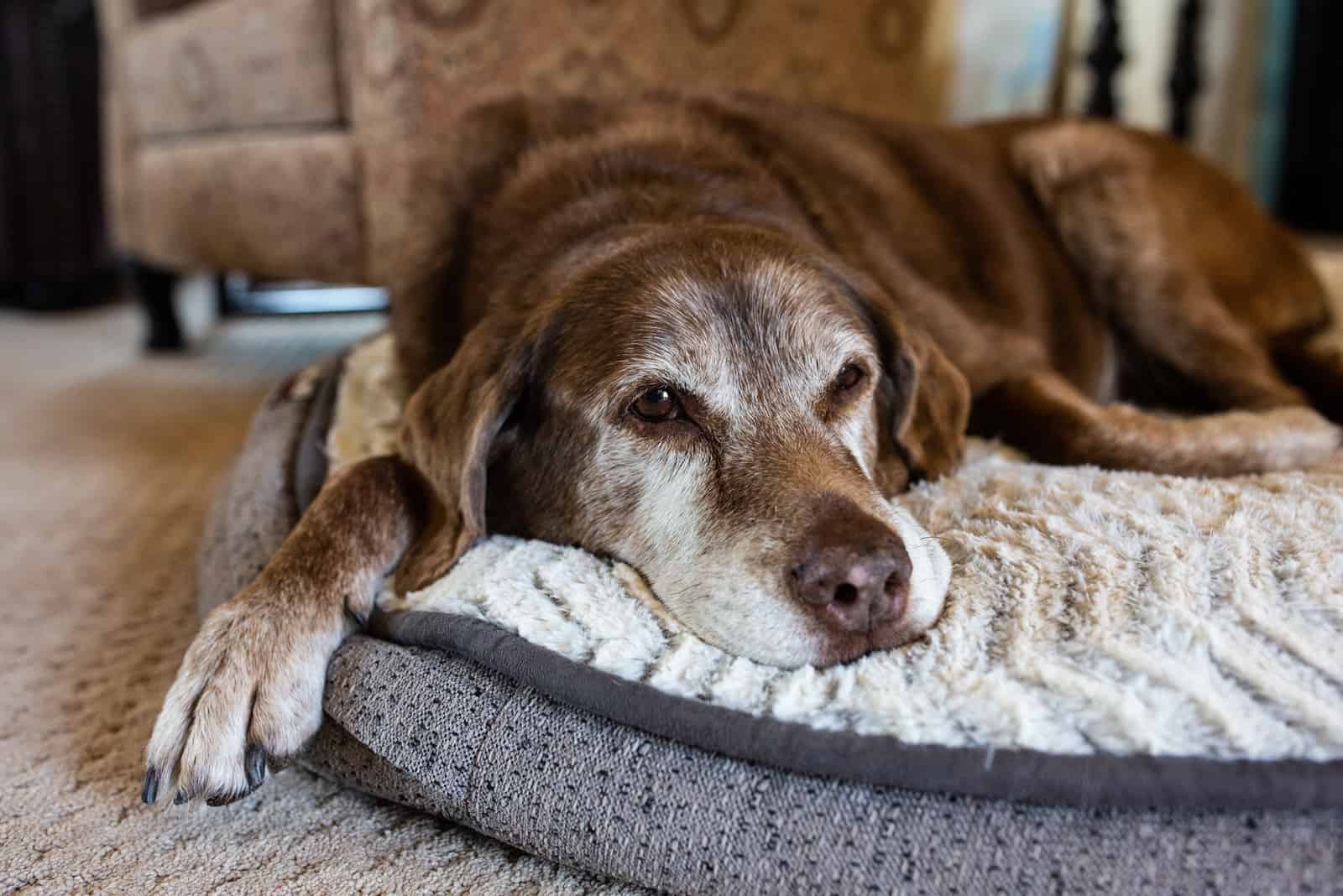
Vet Evaluation
Vets are very familiar with bloat. The increased incidence of the condition has raised awareness in the treatment and progress is almost always guaranteed.
Your role is to visit your vet regularly and decrease the risk factors.
Even in the most horrific cases of GDV, there are emergency surgeries that can save your puppy from fatal consequences. Neutering is a plus and makes the surgical procedure easier. Read more on signs that your dog needs to be neutered.
Once you detect the first symptoms of a bloated stomach, you should go seek veterinary medicine.
Standard medical checks, or an x-ray (if needed), will give you pointers on what to do in the latter stages of this condition.
Go to a DVM licensed vet!
Try to avoid any vet without a DVM license. Stomach fills caused by bloat cannot be treated without sufficient knowledge of the subject.
Do not be misled by thinking that your dog breed is just strong enough to deal with this on its own.
Even the strongest breeds, like doberman pinschers, have a hard time dealing with GDV.
Only vets that have passed DVM exams have enough credibility to treat your pet. Otherwise, it’s just rolling the dice.
Gastropexy
Gastropexy is the last step towards the wellbeing of your puppy. It is a surgical procedure where the stomach of the dog is permanently stitched to the stomach wall.
This way, the vet ensures that bloat won’t happen again. This procedure is only done if none of the previous medical procedures showed results.
Prophylactic Approach
If you have a puppy that tends to be more sensitive than other dog breeds, like a standard poodle, all you need to do in order to be happy is to plan!
Plan everything. The time they eat. Play time. Walking time. Nap time. Dogs are kings of habits and easily adapted to routine.
Avoid Large Meals
Want to be a friend to your puppy? Avoid large meals! This is the first step towards bloat.
Dogs that have a tendency to eat fewer, but larger meals are prone to developing the condition. Large amounts of food just do not suit your canine.
Instead, try to adapt the feeding chart in a way it contains smaller and more frequent meals. Develop a meal plan.
This way you also prevent your dog from running with a full stomach. And being active right after a large meal is one step closer to bloat.
Lifted food bowls
This is one of the most useful tips for GDV prevention. Lifted food bowls help prevent your dog from devouring their food. It also prevents them from swallowing excessive amounts of air.
Canines eating from lifted food bowls develop a habit of healthier positioning which is a plus.
Also, lifted food bowls by default disable the puppy from eating and drinking in large amounts.
With this trick up your sleeve, you can avoid the concern – will a dog with bloat drink water? Yes! Because it won’t harm them and because it does not feel uncomfortable anymore.
To Conclude
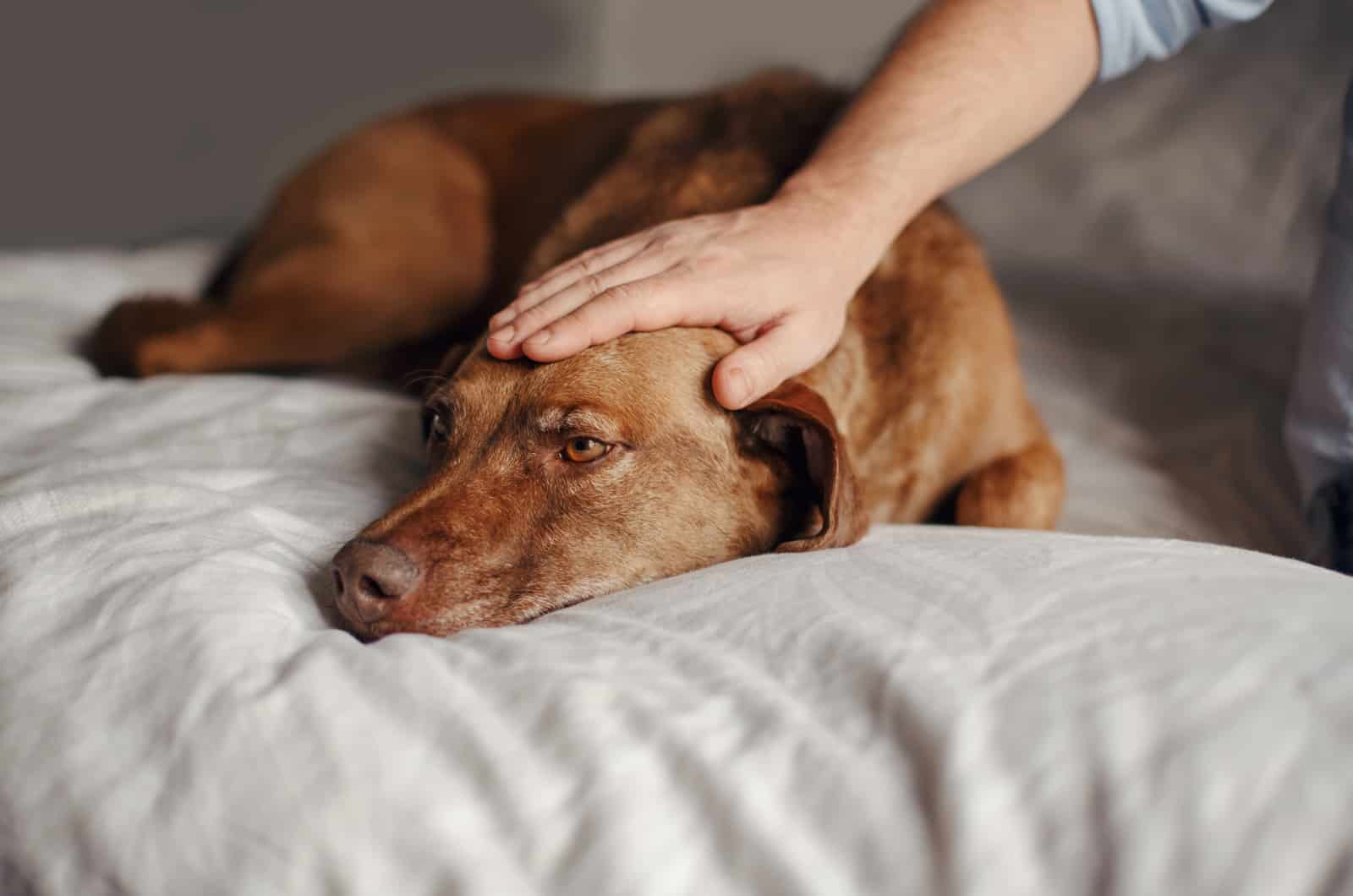
GDV signs can be extensively harmful. If you hear your dog dry heaving, there are a whole bunch of red flags. In addition to your concern – will a dog with bloat drink water? You might need to deal with another set of related issues.
Overeating and unhealthy habits are the direct cause of torsion and stomach twists. The irregular heart rates and low blood flow are the results.
It is essential to detect causes of bloat early. If you notice a distended abdomen on your pet, do not hesitate – rush to the vet!
There is now an increased incidence of bloat condition in any dog breed, and you do not want to gamble.
Endangering your pet’s life unconsciously is the last thing you need.
Read Next:
• Dog Coughs After Drinking Water: Here Are 6 Reasons Why
• Stud Tail In Dogs: Why Does The Bald Spot Show Up?
